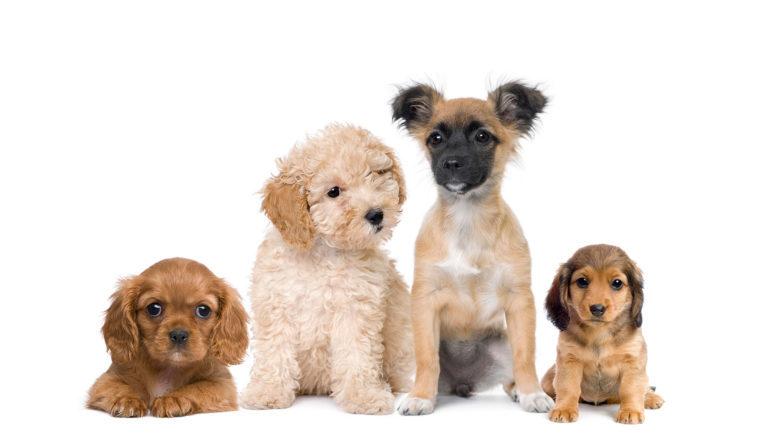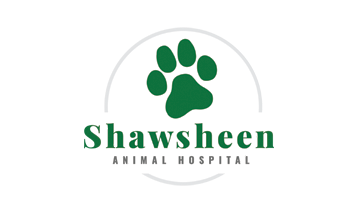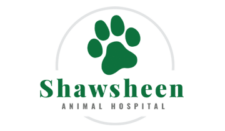Adopting a new puppy is a joyous occasion, and we look forward to helping them start their new life with you! At Shawsheen Animal Hospital, we recommend a series of three exams, 3-4 weeks apart, in their first year of life. The number of exams may vary depending on your pet’s age. Our goal is to track your puppy’s growth and health as they develop so we can assist you in keeping them happy and healthy.
The First Exam
Ideally, your puppy should see us for their first exam when they are around 8 weeks old, but this also counts as a first exam if your puppy older than 8 weeks, but still under a year old.
The initial puppy exam includes:
- A physical examination
- First influenza vaccine
- First distemper vaccine
- Kennel Cough Vaccine
- Fecal exam
- Deworming (if needed)
- Heartworm, flea, and tick preventative
The Second Exam
Your puppy’s second exam is a recheck, and usually takes place when they are 12 weeks old. It includes:
- Physical examination
- Distemper/Lyme/Lepto vaccine (we provide a Fear Free experience using Elanco’s 3 in 1 vaccine that is ½ the volume of traditional vaccines)
- Rabies vaccine
- Booster influenza vaccine
- Heartworm, flea, and tick preventative
The Third Exam
The third exam usually takes place when your puppy reaches 16 weeks of age. We will continue to evaluate your puppy’s health and growth, finalize their vaccinations, and talk about the next steps as your puppy grows into adulthood.
Your puppy’s third exam will likely include:
- Physical examination
- Distemper/Lyme/Lepto vaccine booster
- Influenza vaccine
- Heartworm, flea, and tick prevention
Tips for Potty Training Your Puppy
Potty training is a learning process for both your puppy and you. Here are some tips.
When should my puppy be let outside for potty training?
- Right when you get up in the morning
- Right before going to bed at night
- After being let out of their crate
- After waking up from a nap
- Right after eating and/or drinking
- Time between potty breaks should not exceed 2-4 hours
How Should I Crate Train My Puppy?
- Keep your puppy’s “home” area clean and tidy
- Position your puppy’s crate close to an exterior door so they can be let out quickly for a bathroom break
- Make sure your puppy’s crate is big enough for them to stand up and turn around in
- Leaving the door open can help reinforce the safe space and increase comfort in the crate, rather than only going in to be locked up
How Should I Encourage Good Behavior?
- Avoid scolding your puppy if they’ve had an accident
- Instead, praise them when they do the right thing
- Reward your puppy with attention and/or a treat
How Can I Stop My Puppy’s Bad Behavior?
Puppies are young and learning about the world around them, and may not always act as we want them to act. Patience is key! Here are some behavior tips.
What Things Can My Puppy Chew On?
- Safe chew toys that won’t break down and be a choking hazard
- This may include Kong toys, plush toys, and balls
How Can I Stop My Puppy’s Barking?
- Avoid scolding your puppy, as this could make their barking worse; instead, ignore it and praise your puppy when they are quiet
- Train your puppy to sit to reduce their impulse to bark
How Can I Stop My Puppy from Begging?
- Feed your puppy first, before you and your family eat
- Designate a cozy spot away from the table for your puppy to stay during meal times
- Reward your puppy with attention or a treat when they don’t beg
Tips for Feeding Your Puppy
It’s important to start your puppy on a healthy diet and nurture good eating habits that will carry on throughout your pet’s life.
How Often Should I Feed My Puppy?
- Puppies 6-12 weeks old: 4 times a day
- Puppies 3-6 months old: 3 times a day
- Puppies 6-12 months old: Twice a day
- 12 months and up: 2 half portions a day
What Kind of Diet Does My Puppy Need?
- Ask your veterinarian for their recommendations
- Look for formulas specific to your pet’s age and health
- Consult AAFCO guidelines
- Feed puppy diet until 12 months old and avoid grain free products
What Foods are Harmful to Puppies?
- Grapes/raisins
- Dairy
- Chocolate
- Sugary foods (cakes, muffins, cookies, etc.)

Additional Puppy Care FAQs
Read on for more frequently asked questions about puppy care.
How do I pick the right boarding facility or pet sitting service for my puppy?
We recommend contacting various facilities and pet sitters in your area and asking the following questions (if applicable):
- Can I tour the facility?
- Are there overnight staff at the facility? What is the ratio of staff to boarders?
- Will my pet’s food and water consumption be monitored and documented by staff?
- Will my pet’s urination and defecation be monitored and documented?
- Will my pet be able to eat their regular food and stay on the same feeding schedule?
- Will my pet have any interactions with other animals at the facility?
- Is there a veterinarian on available during the day?
- What are your protocols regarding medical emergencies?
- What vaccines does my puppy need prior to boarding with you?
- Do they need a fecal exam?
- Is your facility temperature controlled?
- Are there cameras in your facility that provide remote access to check on my pet?
Some boarding facilities our clients recommend (Shawsheen Animal Hospital does not endorse one facility over another):
Best Friends Pet Hotel
2 Technology Drive
Tyngsborough, MA 01879
Phone: (978) 649-8585
The Dog Nanny
112 Tewksbury St.
Andover, MA
Phone: (978) 475-1114
Crazy Canines (Daycare)
1088 Gorham St.
Lowell, MA 01852
Phone: (978) 710-5808
How do I pick a grooming facility?
To find the right grooming facility for your pet, here are some questions to ask when you call around:
- Are there any vaccination requirements? (Avoid facilities that do not have vaccination requirements)
- Do you offer a tour of the facility?
- Do you have staff that make sure no pets are left unattended in tubs or on tables?
- Are dogs’ cages dried or table dried?
- Are you licensed and ensured?
Here are some groomers recommended by our clients. Shawsheen Animal Hospital does not endorse any groomer personally.
Diamond Dog
481 Boston Rd.
Billerica, MA
Phone: (978) 670-6061
Happy Tails Grooming
7 Lupine Rd
Andover, MA
Phone: (978) 475-6860
Groomingdales for Dogs and Cats
651B Boston Rd.
Billerica, MA
Phone: (978) 670-1123
Grooming Emporium
1275 Pawtucket Blvd.
Lowell, MA
Phone: (978) 454-WOOF
King’s Royal Pet Grooming
91 Main St.
Wilmington, MA
Phone: (978) 967-9172
The Social Pup
34 Jackson St.
Lowell, MA
Phone: (978) 453-3161
Katz and Hounds
145 Broadway Road
Dracut, MA 01826
(978) 455-2918
How do I pick the right dog trainer?
We highly recommend that your puppy attend basic training. This will help them experience public settings so they can interact with other puppies and humans and become better adjusted to life with you! Training classes are also valuable for you and your family, as you can learn how to manage your pet’s behavior and nurture a more harmonious relationship with them.
When looking for a trainer for your puppy, call around (see our clients’ trainer recommendations down below) and be sure to ask these questions:
- Will positive reinforcement be used?
- Should my whole family be involved in the training process?
- Are your trainers licensed? (APDT certification)
- What vaccines are required for my puppy to attend training?
- Can I observe a class prior to enrolling my puppy?
Here are some of our clients’ puppy and dog training recommendations. Please note that Shawsheen Animal Hospital does not personally endorse any particular one:
Crazy Canines
1088 Gorham St.
Lowell, MA 01852
Phone: (978) 710-5808
Waggin’ Tail Dog Training Center
67 Broadway St.
Westford, MA
Phone: (978) 392-0945
Gemini Dog Training
53-B Ayer Rd.
Littleton, MA
Phone: (978) 486-9922
Nevins Farm-MSPCA
Methuen, MA
Phone: (978) 687-0056
Email: trainingnevins@mspca.org
Dog’s Time
Billerica, MA
Phone: (978) 667-6607
The Social Pup
34 Jackson St.
Lowell, MA
Phone: (978) 453-3161
How can I clean my dog’s ears?
It’s important to check your dog’s ears and clean them regularly to prevent an ear infection. Once weekly is ideal to maintain clean ears, along with any time after your dog has had a bath or gone swimming.
Tips for cleaning your dog’s ears:
- Use a veterinarian-approved product that is proven safe and effective
- Pour the recommended amount of solution into your dog’s ear(s)
- Massage the ear from the base of the ear canal
- Allow your dog to shake their head
- Use a clean cotton ball or square of gauze to wipe out any debris that emerge in the outer ear
- Never use Q-tips
Your dog’s ear canals are L-shaped, so you shouldn’t have to worry about harming their eardrums. However, due to the L shape, it’s necessary to flood the ear canal with ear cleaning solution and then massaging the ear to help break down any buildup within the ear and flush out debris.
How should I trim my dog’s nails?
The best way to make nail trimming easy for your dog and for you is to start when they are a puppy. This will get them used to having their paws handled. If your puppy behaves well while you handle their feet, reward them with a treat. This will help to make the nail trimming experience much more pleasant for them.
It is essential that you do not trim your dog’s nails too short. Each nail has what is called a “quick,” and the quick contains blood vessels and nerves. In dogs with dark or black fur, the quick is impossible to see, so be extra careful. If the quick is cut, it will cause pain and bleeding. Fortunately, this bleeding is never serious, and can be staunched by pressing flour or corn starch to the wound. If for any reason the quick continues to bleed, contact us at [business-phone].
If you are unable to trim your dog’s nails or simply aren’t comfortable doing it on your own, a technician of ours will be happy to help! Just call us for an appointment.
How do I socialize my puppy?
If you want your puppy to be happy and well adjusted, socialization is critical. Positive reinforcement during training and exposure to new places, people, and experiences will take your pet far in life. When you take your puppy out and about with you, bring along a handful of treats to reward them when they behave well. On the other hand, if your puppy seems fearful, shy, or anxious, do not punish them for their behavior. Ignore it instead of trying to coddle your puppy, as this could reinforce their negative behaviors.
Separation anxiety can cause puppies to become reliant on you to stay calm. Have your puppy spend time each day on their own without seeing or hearing you will help increase their confidence.
It’s helpful to get your puppy acclimated to the vet’s office, too. You can call us ahead of time and drop in for a quick visit so your puppy can get used to the sights, sounds, and smells of our facility. Our team would love to say hello and greet your puppy with lots of attention (and some treats!).
At home, spend some time helping your puppy get used to having their ears, feet, and mouth handled. Praise your puppy when they behave well during these exercises.
You should also train your puppy not to be food aggressive or overly possessive. When they are eating, briefly take away their food, or take away their toy briefly while they are playing. Reward your puppy when they allow you to do so without a fuss.
Positive reinforcement cannot be stressed enough. Continue to reinforce only good behaviors and refuse to react to unwanted behaviors.



